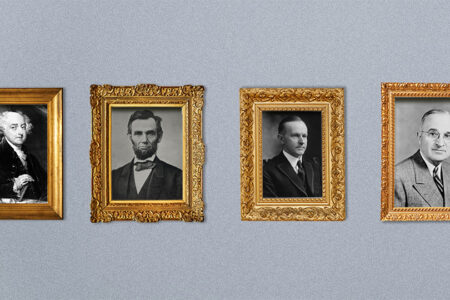The Wrong Trifecta
Three ways Job’s friends made a mess of trying to help him
After his wife’s death, C. S. Lewis kept a journal documenting his journey of grief. It was later published as A Grief Observed. One of the entries jolted me:
What chokes every prayer and every hope is the memory of all the prayers . . . I offered and all the false hopes we had. Not hopes raised merely by our own wishful thinking, hopes encouraged, even forced upon us, by false diagnoses, by X-ray photographs, by strange remissions, by one temporary recovery that might have ranked as a miracle. Step by step we were ‘led up the garden path.’ Time after time, when He seemed most gracious He was really preparing the next torture.1
Lewis made the entry one evening as he went to bed. When he got up the next morning, he wrote this: “I wrote that last night. It was a yell rather than a thought.”
Lewis’s experience illustrates how emotion can overwhelm thinking when we wrestle with tremendous loss and grief. Hurting people do not need friends (even Christian ones) who philosophize and theologize at that moment. What they need is comfort and love.
That is what Job needed but did not get from his three friends in the book of Job. Instead, they were like people who visit you in the hospital as you face a life-threatening illness and ask, “Is there some sin in your life that brought you here? Is God judging you?” If your friends behave that way, you certainly don’t want enemies visiting you!
Job’s friends Eliphaz, Bildad, and Zophar first show up in Job 2:11–13. They were rightly motivated to help Job by mourning with and comforting him in person (v. 11). Indeed, they wept when they saw his affliction, and they followed tradition by tearing their robes and sprinkling dust on their heads to identify with his agony (v. 12). They even sat with him without saying a word for seven whole days. Hurting people need presence more than words.
However, out of his tremendous sorrow, Job began to express negativity. Tragically, he wished he were never born (3:1) or were like an infant who never saw light (v. 16). Then his friends broke their silence and entered into three cycles of debate with Job (chaps. 4—31). Unfortunately, what they said neither ministered to him nor spoke truth concerning God’s ways.
Bad Theology
First, the friends’ bad advice emanated from a framework of false belief that today we call prosperity theology. This view permeated all their speeches.
Though some preachers formally teach this position today, informally it is held throughout the church as individual Christians struggle with interpreting their own lives. This view states that if things are going well, God is blessing. If not, He is judging. It’s a great temptation to look at life this way. The three friends certainly did. They did not understand that Job’s was innocent suffering: He committed no sins that brought this trouble on his life and that of his family. In fact, God declared him “blameless and upright” (1:1, 8).
Yet, in his first speech, Eliphaz asked, “Who ever perished being innocent?” (4:7), suggesting Job was not blameless. Later he told Job those who suffer should be happy God is chastising them (5:17). Eliphaz apparently held to prosperity theology. To him, Job’s predicament could only mean Job sinned and brought God’s judgment. No alternative existed.
Bildad, the second friend, charged Job with hypocrisy when he claimed innocence: “If you were pure and upright, surely now He would awake for you, and prosper your rightful dwelling place” (8:6). He added, “The hope of the hypocrite shall perish” (v. 13).
The third friend, Zophar, continued hammering Job for hypocrisy but cruelly suggested he deserved even more punishment: “Know therefore that God exacts from you less than your iniquity deserves” (11:6).
All three men thought Job’s health issues, loss of his children, and loss of his wealth automatically meant Job had sinned and brought tragedy down on his head.
However, in a fallen world, life is always full of trouble: “Man who is born of woman is of few days and full of trouble” (14:1). Troubles do not mean God has abandoned us or is judging us for our individual sins. True, sometimes God judges us in this life for our sins (1 Cor. 11:30). However, in the account of the man born blind, Jesus made it clear no one sinned to bring the catastrophe of blindness into that family (Jn. 9:1–3), confirming the existence of innocent suffering, such as Job experienced.
Unhelpful Accusations
Second, the three friends’ bad arguments devolved into unhelpful, intense accusations. Eliphaz argued that Job’s own words condemned him (Job 15:5–6) and that an evil man “drinks iniquity like water” (v. 16).
Pointing to his interpretation of Job’s life without any real evidence, Eliphaz claimed “the company of hypocrites will be barren, and fire will consume the tents of bribery” (v. 34). Then Bildad added words that can only be described as powerfully hurtful, essentially telling Job to shut up (18:2) and almost gleefully noting that Job trapped himself (vv. 8–10).
According to Bildad’s reasoning based on his prosperity theology, the wicked (in whose number he included Job) “has neither son nor posterity among his people, nor any remaining in his dwellings” (v. 19). His statement approached cruelty and provoked Job to exclaim, “How long will you torment my soul?” (19:2).
Zophar joined in piling on Job by describing God’s heritage for the wicked: “The increase of his house will depart, and his goods will flow away in the day of His wrath” (20:28). Such intense accusations based on a false premise help no one.
Half-Truths
Third, these bad arguments often used partial or half-truths that flow naturally from prosperity thinking, which assumes that, because some are judged in this life, everyone is judged in this life—a teaching more in sync with Eastern mysticism than the Bible.
Only Eliphaz and Bildad participated in the third cycle of speeches. Eliphaz continued with his line of reasoning when he asked Job, “Is not your wickedness great, and your iniquity without end?” (22:5). As a result, he asked Job to return to God (v. 23).
This would be a noble request were there known sin. However, it did not apply to Job’s situation of innocent suffering. Job’s sin was merely assumed. Bildad more clearly presented a partial truth. He argued that people in general are like maggots or worms in God’s eyes. This so-called worm theology only tells part of the story.
Certainly, man’s wickedness is great (Isa. 64:6; Rom. 3:10; Eph. 2:1–3). Every individual needs to trust the work of Jesus the Messiah on the cross as payment for his or her sin. Man is truly low in God’s eyes, both as a sinner and as a creature. However, everyone is made in God’s image even if he or she has never trusted Christ (Gen. 9:6; 1 Cor. 11:7; Jas. 3:9). We are not merely worms in His eyes. There is a balance Job’s friends failed to find.
The episode of Job’s three friends leads to one conclusion: They were miserable comforters.2 Wrote Dr. Alden Gannett, “They desire to be spiritual doctors, but as they come to diagnose Job’s problems, they do not know God well enough to minister help. Thus Job rightly calls them ‘physicians of no value.’”3
The implication for Christians today is that we must not overstate our abilities to evaluate the lives of others. We should follow a balanced understanding of Scripture instead of being like Job’s three friends, and we should offer those who hurt the comfort and love of Christ.
ENDNOTES
-
-
- C. S. Lewis, A Grief Observed (New York, NY: Bantam Books, 1976), 34–35.
- Henry M. Morris, The Remarkable Record of Job (Grand Rapids, MI: Baker, 1988), 63.
- Dr. Alden Gannett, How to Keep Your Eyes on God When They’re Full of Tears (Birmingham, AL: Gannett Ministries, n.d.), 22.
-









Very helpful analysis. The phrase “Job’s friends” is often thrown around with a negative connotation as if everyone understands the meaning, but most of us don’t really understand clearly how Job’s friends were in error. This article puts the cookies of understanding on the lowest shelf for all of us. Thanks!
Great insight. In the past nine months since my wife’s passing I have identified with Job as never before. Those who have comforted me most are those who have said, “I don’t really know all you are going through, but I’m here for you. Let’s go for coffee.” Thanks for the helpful article, Mike.